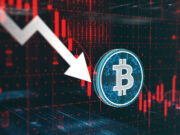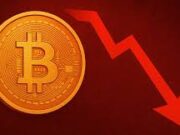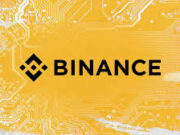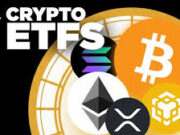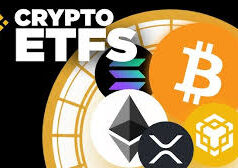The cryptocurrency world is no stranger to sudden shifts, but the recent announcement from South Korea’s leading exchanges, Upbit and Bithumb, has sent ripples through the market. On July 27, 2025, both exchanges, alongside other members of the Digital Asset Exchange Association of Korea (DAXA), revealed plans to terminate trading support for Pundi AI (PUNDIAI) by August 28, 2025. This decision, rooted in concerns over the project’s legality, sustainability, and security, has sparked debate among investors and raised questions about the future of PUNDIAI. Let’s dive into what this delisting means, why it’s happening, and what it signals for the broader crypto ecosystem.
📉 The Delisting Announcement: What Happened?
On July 30, 2025, both Upbit and Bithumb issued official statements declaring their decision to end support for PUNDIX trading pairs. According to the notices:
- Upbit will stop all PUNDIX/KRW trading on August 6, 2025, at 3:00 PM KST.
- Bithumb is implementing a similar timeline, with trading support ending on August 7, 2025.
Users are being urged to withdraw any remaining PUNDIX tokens from their exchange wallets before a specified final deadline. After that, the tokens will no longer be accessible or transferable on those platforms.
🧠 Why Is PUNDIX Being Delisted?
While neither exchange gave an extensive explanation, several possible reasons emerge based on past practices and market behavior.
1. Low Trading Volume
Both Upbit and Bithumb are known to conduct regular reviews of tokens listed on their platforms. If a cryptocurrency fails to meet minimum standards—such as low liquidity or declining trading volume—it risks being flagged for removal.
2. Lack of Developer Transparency or Updates
Some speculate that insufficient project updates or developer transparency contributed to the delisting. Korean exchanges have grown increasingly cautious in the wake of regulatory scrutiny and want to ensure the assets they support are from actively maintained projects.
3. Compliance with Regulations
South Korea has been tightening its grip on crypto regulations, especially regarding token listing standards, anti-money laundering (AML) rules, and investor protection. Exchanges are under pressure to avoid any assets that may raise compliance red flags.
🪙 A Quick Recap: What Is PUNDIX?
Pundi X is a blockchain-based project aimed at making crypto payments as easy as swiping a credit card. Its flagship product, the XPOS device, enables retailers to accept cryptocurrencies at physical points of sale.
Originally launched in 2018, Pundi X gained early traction due to its bold ambition: revolutionizing retail payments with blockchain. In 2021, it rebranded from the original NPXS token to PUNDIX as part of a token redenomination and platform upgrade.
Despite its innovation, PUNDIX has struggled to maintain momentum in recent years. Usage of the XPOS devices has not scaled as expected, and the project’s visibility has diminished.
🌍 Impact on the Korean Crypto Market
For PUNDIAI holders, the delisting is a gut punch. Upbit and Bithumb are heavyweights in South Korea, a crypto hotspot where trading volumes often dwarf other markets. In May 2025, for instance, the PUNDIX/KRW pair accounted for 8.35% of Upbit’s $1.553 billion 24-hour trading volume, underscoring the token’s popularity in the region. Losing access to these platforms could slash liquidity, making it harder for traders to buy or sell PUNDIAI without significant price slippage.
Price volatility is another concern. Delistings often trigger selloffs, as investors rush to exit before trading halts. While PUNDIAI’s price wasn’t explicitly reported in the announcements, PUNDIX was trading at $0.3128 recently, down 3.48% in 24 hours and 13.68% weekly, suggesting bearish pressure that could spill over to PUNDIAI. Investors holding PUNDIAI in exchange wallets will need to withdraw their tokens to personal wallets or move to other platforms like Binance, where PUNDIAI/USDT remains active with $5.22 million in daily volume.
For long-term holders, the delisting raises deeper questions. If DAXA’s concerns about legality and sustainability hold water, could PUNDIAI face further scrutiny globally? The project’s team now faces the daunting task of addressing these doubts to prevent additional exchanges from following suit.
🚨 What Should PUNDIX Holders Do Now?
If you’re holding PUNDIX on either Upbit or Bithumb, don’t panic—but act swiftly.
✅ Here’s what you need to do:
- Withdraw PUNDIX Tokens Before the Deadline:
Exchanges typically give a grace period for withdrawals even after trading ends. Mark your calendar with the final withdrawal date (usually 30–60 days post delisting). - Consider Transferring to Other Exchanges or Wallets:
Binance, KuCoin, and decentralized exchanges like Uniswap may still support PUNDIX trading. You can also store your tokens in a non-custodial wallet like MetaMask or Ledger. - Reevaluate Your Investment Thesis:
If you bought PUNDIX with a long-term view, now’s a good time to revisit your reasons. Is the project still meeting its goals? Is there real-world usage, or has it stalled?
The Broader Context: South Korea’s Crypto Crackdown
This delisting doesn’t exist in a vacuum. South Korea has one of the world’s most robust crypto regulatory frameworks, with exchanges required to comply with strict anti-money laundering (AML) and know-your-customer (KYC) rules. DAXA’s role is to ensure projects meet high standards, protecting investors from scams or unsustainable ventures. The decision to delist PUNDIAI reflects this cautious approach, especially amid global regulatory headwinds.
South Korea’s influence on crypto markets is outsized. Upbit and Bithumb dominate trading volumes, and their decisions often set the tone for smaller exchanges. The country’s retail investors are also known for driving speculative rallies, particularly in altcoins and meme coins. PUNDIAI’s delisting could signal a broader crackdown on projects lacking transparency or robust fundamentals, a trend that might worry other altcoin teams.
Globally, regulators are tightening the screws. The U.S. SEC’s ongoing battles with crypto firms and the EU’s MiCA framework are reshaping the industry. South Korea’s move to delist PUNDIAI aligns with this shift, prioritizing investor protection over unchecked innovation. For crypto projects, the message is clear: transparency and compliance are non-negotiable.
💬 Community Reaction: A Mixed Bag
The reaction from the crypto community has been split. Some long-time holders see the move as a sign of Pundi X’s decline and are selling off. Others are more optimistic, citing potential for growth in non-Korean markets.
Pundi X’s official team has yet to release a detailed response. Their ability to handle this situation—and communicate transparently with investors—will play a big role in restoring confidence.
🔍 What This Means for Other Altcoins
This delisting highlights a trend that altcoin projects can’t afford to ignore: if you’re not active, relevant, or compliant, you’re at risk. Korean exchanges, in particular, are becoming choosy with listings, and other regions may follow suit.
Projects need to:
- Deliver consistent updates
- Prove real-world utility
- Engage their communities
- Stay aligned with evolving regulations
The era of passive, hype-driven tokens is ending.
✍️ The Road Ahead: Can PUNDIAI Recover?
The delisting is a setback, but it’s not necessarily the end for PUNDIAI. The broader Pundi X ecosystem, with its focus on real-world crypto payments, has a solid foundation. If the Pundi AI team can address DAXA’s concerns—perhaps by releasing detailed audits or clarifying the project’s goals—they might regain trust. Partnerships with retailers and payment providers, as Pundi X has pursued with XPOS, could also bolster credibility.
However, the clock is ticking. With less than a month until trading halts on Upbit and Bithumb, the team must act fast to restore confidence. A failure to do so could see PUNDIAI relegated to obscure exchanges, diminishing its relevance. For now, investors should stay vigilant, monitor updates, and brace for volatility.
This episode also highlights the crypto market’s growing pains. As regulation tightens, projects must adapt or risk being left behind. For PUNDIAI, the path forward depends on transparency, resilience, and a clear vision. Whether it can rise to the challenge remains to be seen, but one thing’s certain: the crypto world never lacks for drama.

